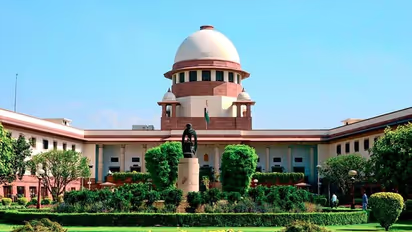'Ready for elections at any time in Jammu and Kashmir': Centre tells Supreme Court

Synopsis
The Centre indicated that the legislative assembly elections in Jammu and Kashmir are likely to follow the panchayat and municipal polls. Solicitor General Tushar Mehta clarified that the sequence of these elections will be determined by the State Election Commission and the Central Election Commission.
The central government on Thursday (August 31) conveyed to the Supreme Court that it stands prepared for elections in Jammu and Kashmir at any given moment. Solicitor General Tushar Mehta, representing the government, affirmed that the process of updating the voter list has been substantially completed.
Mehta further indicated that the legislative assembly elections in Jammu and Kashmir are likely to follow the panchayat and municipal polls. He clarified that the sequence of these elections will be determined by the State Election Commission and the Central Election Commission.
Explaining the electoral landscape, Mehta said, "There are three elections that are pending. The three-tier panchayat raj system has been introduced for the first time. Initial elections will focus on panchayats, with district development council elections already conducted."
He stressed that "peace doesn't only come with police action" and highlighted the introduction of schemes and various projects. Addressing the unique status of Jammu and Kashmir as a Union Territory, Mehta commented, "Though the Union Territory status is temporary for J&K, the precise timeline for the restoration of statehood remains uncertain."
In an earlier hearing on Monday, the Supreme Court acknowledged the Centre's argument in response to pleas challenging the abrogation of Article 370. The court leaned towards the notion that the Constitution of Jammu and Kashmir is "subordinate" to the Indian Constitution, which holds a higher position.
Adani Group rejects allegations of 'Hidden Foreign Investors' amidst controversy
However, a five-judge bench led by Chief Justice DY Chandrachud appeared to differ with the assertion that the Constituent Assembly of the erstwhile state, which was dissolved in 1957, can be equated to a legislative assembly.
Stay updated with the Breaking News Today and Latest News from across India and around the world. Get real-time updates, in-depth analysis, and comprehensive coverage of India News, World News, Indian Defence News, Kerala News, and Karnataka News. From politics to current affairs, follow every major story as it unfolds. Get real-time updates from IMD on major cities weather forecasts, including Rain alerts, Cyclone warnings, and temperature trends. Download the Asianet News Official App from the Android Play Store and iPhone App Store for accurate and timely news updates anytime, anywhere.